Unlock the Secret to Luscious Locks: A Comprehensive Guide on How to Improve Hair Health and Growth
Introduction:
In the hustle and bustle of our daily lives, it’s easy to neglect the health of our hair. However, taking care of your hair is more than just a superficial concern – it’s a reflection of your overall well-being. If you’re yearning for that enviable, vibrant hair, this comprehensive guide will provide you with actionable tips and insights on how to improve hair health and encourage growth.
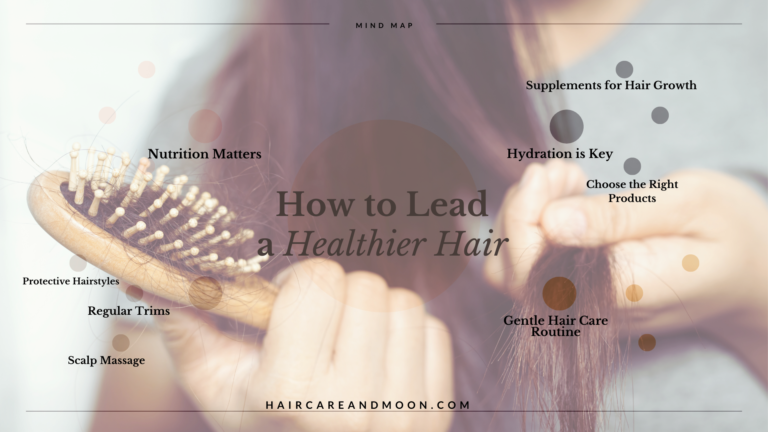
1.Nutrition Matters:
The foundation for healthy hair begins with a well-balanced diet. Essential nutrients like vitamins A, C, E, and biotin contribute to hair strength and growth. Incorporate a variety of fruits, vegetables, lean proteins, and whole grains into your meals to ensure your body has the necessary building blocks for luxurious locks.

2.Hydration is Key:
Just as your body needs water for overall health, your hair requires proper hydration to stay soft and supple. Aim to drink at least 8 glasses of water a day to keep your hair and scalp moisturized. Dehydration can lead to brittle hair and even hair loss.
3.Gentle Hair Care Routine
Treat your hair with care, starting from your washing routine. Use a sulfate-free shampoo to avoid stripping your hair of its natural oils. Opt for a wide-tooth comb to detangle wet hair gently. Be mindful of heat styling tools, limiting their use to prevent damage.
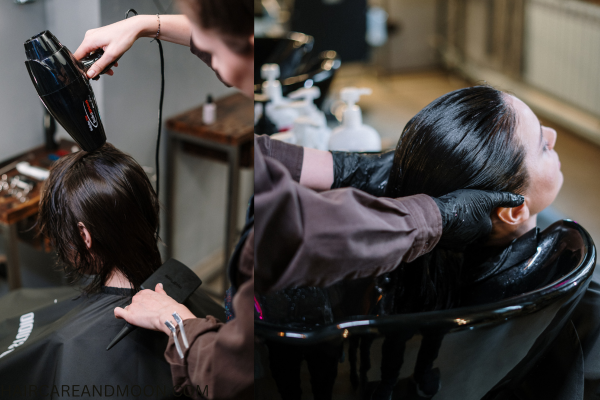
4.Regular Trims
Contrary to the belief that skipping haircuts promotes growth, regular trims are essential for maintaining healthy hair. Trimming removes split ends, preventing them from traveling up the hair shaft and causing more significant damage.
5.Scalp Massage
Stimulate blood circulation to the hair follicles by indulging in a regular scalp massage. This simple practice enhances nutrient delivery to the hair roots, promoting growth and overall scalp health. You can use essential oils like lavender or rosemary for added benefits.

6.Protective Hairstyles
Give your hair a break from tight hairstyles that can cause stress and breakage. Opt for protective styles like braids or loose buns to minimize strain on your hair. This is particularly important if you’re dealing with fragile or damaged hair.
7.Choose the Right Products
Select hair care products tailored to your hair type. Whether your hair is straight, curly, or somewhere in between, using products designed for your specific needs can make a significant difference in maintaining optimal hair health.
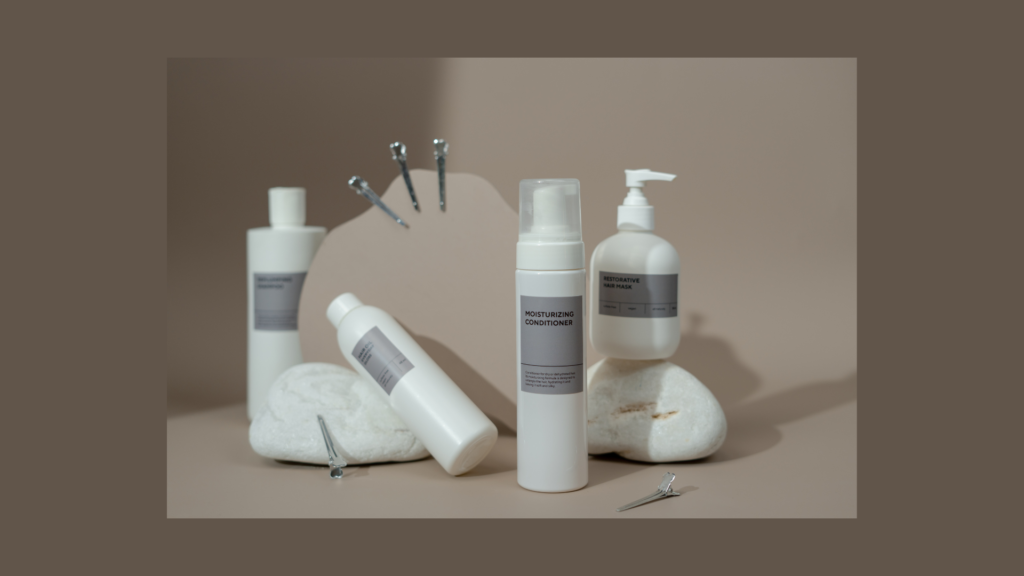
8.Supplements for Hair Growth
Consult with a healthcare professional to determine if supplements like biotin or omega-3 fatty acids are suitable for you. These supplements can complement a healthy diet and contribute to improved hair health.
Conclusion
In the pursuit of attractive hair, it is important to take a holistic approach. From nourishing your body with the right nutrients to implementing a gentle hair care routine, these tips are the path to beautiful hair. Remember, consistency is key, so make these habits a part of your lifestyle and watch as your hair transforms into its healthiest, most beautiful state. Here’s to the journey to achieving and maintaining vibrant, beautiful hair!
How to improve hair health and growth natrually
Introduction:
In a world filled with hair care products promising miraculous results, it’s easy to forget the power of nature in fostering luscious locks. If you’re seeking a natural approach to enhance your hair health and promote growth, you’re in the right place. Let’s explore the wonders of natural remedies that can revitalize your mane without resorting to chemical-laden solutions.

Balanced Diet for Beautiful Hair: The foundation of healthy hair growth lies in your diet. Ensure you’re getting a well-rounded mix of vitamins and minerals by incorporating foods rich in biotin, vitamin E, and omega-3 fatty acids. Foods like salmon, avocados, nuts, and leafy greens can significantly contribute to your hair’s vitality.
Essential Oils for Scalp Massage: The therapeutic benefits of essential oils extend to your scalp. Consider incorporating oils such as lavender, rosemary, or peppermint into your routine. These oils not only promote relaxation but also stimulate blood circulation, providing a conducive environment for hair growth.
DIY Hair Masks: Treat your hair to natural masks that can nourish and strengthen it. Ingredients like honey, yogurt, avocado, and egg can be combined to create a homemade hair mask. These masks can moisturize, add shine, and repair damaged hair.
Aloe Vera Magic: Aloe vera is a powerhouse of nutrients that can benefit your hair. Extract the gel from a fresh aloe vera leaf and apply it to your scalp. Leave it on for 30 minutes before rinsing. Aloe vera helps to balance the pH of the scalp and promotes a healthy environment for hair growth.
Gentle Detangling Techniques: Be kind to your hair when detangling. Use a wide-tooth comb and start from the tips, gradually working your way up. This minimizes breakage and reduces stress on the hair shaft, allowing it to grow without unnecessary damage.
Henna for Strength and Shine: Consider using natural henna to not only add a touch of color but also to strengthen and add shine to your hair. Henna is a natural dye that has been used for centuries for its conditioning properties.
Stay Hydrated: Hydration is crucial for healthy hair. Make sure you’re drinking enough water to keep your body and hair adequately moisturized. Dehydration can lead to brittle and dry hair, hindering growth.
Reduce Heat Styling: Limit the use of heat styling tools, as excessive heat can damage the hair shaft. Embrace your natural texture and, if needed, opt for heat-free styling methods such as braids or twists to achieve your desired look.
Regular Trims: While you’re on a natural hair care journey, regular trims are still essential. This helps eliminate split ends, preventing them from causing further damage up the hair shaft.
Conclusion
Embracing natural remedies for hair care is not just a trend; it’s a commitment to nourishing your hair from the inside out. By adopting these natural practices and incorporating them into your routine, you can cultivate a healthy scalp and promote the growth of strong, beautiful hair. Remember, the key lies in consistency and patience as you embark on this natural journey towards vibrant and flourishing locks.
How to improve hair health and growth in our busy life
Introduction
In the whirlwind of our busy lives, self-care often takes a back seat. However, maintaining healthy hair doesn’t have to be a time-consuming endeavor. This guide is tailored for those with hectic schedules, providing practical and time-efficient tips to enhance hair health and stimulate growth, seamlessly integrating into your bustling lifestyle.

Smart Nutrition for Busy Days: Optimize your diet by choosing nutrient-dense, easily portable snacks. Incorporate on-the-go options like nuts, seeds, and fruits rich in vitamins and minerals essential for hair health. Consider meal prepping for the week to ensure you have nourishing options readily available.
Quick and Gentle Hair Care Routine: Streamline your hair care routine by choosing products that multitask. Look for sulfate-free shampoos and conditioners that cleanse and hydrate simultaneously. Embrace the convenience of dry shampoo on busy days to refresh your locks without a full wash.
Hydration on the Fly: Keep a reusable water bottle with you throughout the day. Staying hydrated is not only crucial for overall health but also promotes hair hydration and growth. Small sips throughout the day can make a significant difference without disrupting your schedule.
Incorporate Scalp Massage into Daily Tasks: Turn mundane activities into opportunities for self-care. While shampooing or conditioning, take a few extra minutes to massage your scalp. This simple practice stimulates blood flow, promoting a healthy environment for hair growth.
Portable DIY Hair Masks: Create simple DIY hair masks using ingredients like coconut oil, honey, or yogurt. Apply these masks during activities that allow you to multitask, such as working from home or catching up on emails. These nourishing masks can revive your hair without requiring dedicated time.
Desk-Friendly Hair Tools: Keep hair-friendly tools at your desk or in your bag. A wide-tooth comb and a few hair ties can help you manage your hair throughout the day, preventing tangles and reducing stress on your locks.
Healthy Snacks for Happy Hair: Snack strategically on foods rich in biotin and omega-3 fatty acids, like almonds, walnuts, and seeds. These snacks not only contribute to your overall well-being but also support hair health and growth.
Mindful Stress Management: Busy schedules often come with stress, which can adversely affect your hair. Incorporate stress-relief techniques such as deep breathing or short walks during breaks to maintain a healthy balance.
Overnight Treatments: Make use of your sleep time for hair care. Apply a leave-in conditioner or a small amount of coconut oil before bedtime. This overnight treatment provides deep hydration without requiring additional effort during your busy day.
Conclusion
Achieving luscious locks doesn’t have to be an arduous task, even in the midst of a hectic schedule. By incorporating these simple, time-efficient practices into your routine, you can effortlessly enhance your hair health and stimulate growth. Remember, small, consistent efforts can lead to remarkable results, allowing you to showcase beautiful, healthy hair while navigating the demands of your busy life.
FAQ: How to improve hair health and growth
Q: What role does diet play in improving hair health and growth?
- A: Proper nutrition is fundamental. A balanced diet rich in vitamins and minerals, such as biotin and iron, supports healthy hair growth.
Q: Can stress affect hair health, and how can it be managed?
- A: Yes, stress can impact hair health. Managing stress through techniques like meditation and exercise can positively influence hair growth.
Q: Are there specific hairstyles that promote hair growth?
- A: Gentle, loose hairstyles like braids or buns can minimize stress on hair, fostering a healthier environment for growth.
Q: Does cutting hair frequently help in faster growth?
- A: Regular trims prevent split ends, but they don’t necessarily speed up hair growth. They contribute to overall hair health.
Q: How does hydration impact hair health?
- A: Hydration is crucial. Drinking enough water keeps your hair and scalp moisturized, preventing dryness and brittleness.
Q: Can natural oils like coconut oil aid in hair growth?
- A: Yes, natural oils can nourish the hair and scalp, providing essential nutrients and promoting growth when used regularly.
Q: Does heat styling damage hair, and how can it be minimized?
- A: Excessive heat styling can damage hair. Limiting heat usage and using heat protectant products can minimize potential harm.
Q: What vitamins and supplements support hair growth?
- A: Biotin, vitamin E, and omega-3 fatty acids are known to promote hair health. Consult with a healthcare professional before taking supplements.
Q: How does sleep quality affect hair health?
- A: Quality sleep is essential for overall well-being, including hair health. Lack of sleep can contribute to hair loss.
Q: Can certain medical conditions impact hair growth?
- A: Conditions like thyroid disorders or hormonal imbalances may affect hair growth. Seeking medical advice is crucial for diagnosis and management.
- Q: Are there DIY hair masks that can be made at home for better hair health?
- A: Yes, using ingredients like honey, yogurt, and avocado can create effective DIY masks for moisturizing and nourishing hair.
- Q: How often should I wash my hair to maintain its health?
- A: The frequency varies by hair type. Generally, washing 2-3 times a week with a sulfate-free shampoo is recommended.
- Q: Can smoking and excessive alcohol consumption affect hair health?
- A: Yes, both can have negative effects. Quitting smoking and moderating alcohol intake can positively impact overall health, including hair.
- Q: Is there a link between hormonal changes and hair loss?
- A: Hormonal changes, such as during pregnancy or menopause, can contribute to temporary hair loss. It’s often a natural part of the hormonal cycle.
- Q: How can I protect my hair from environmental damage?
- A: Wearing hats or scarves in harsh weather, using UV protection products, and avoiding excessive sun exposure can help protect hair.
- Q: Can coloring and chemical treatments damage hair?
- A: Yes, frequent coloring and harsh chemical treatments can damage hair. Opt for gentler alternatives and use deep-conditioning treatments.
- Q: What role does exercise play in promoting hair health?
- A: Regular exercise improves blood circulation, including to the scalp, which can support hair growth.
- Q: Can genetics influence hair growth and thickness?
- A: Yes, genetic factors play a significant role in determining hair characteristics. However, adopting a healthy lifestyle can still positively impact hair health.
- Q: Can poor sleep quality lead to hair loss?
- A: Yes, inadequate sleep may contribute to stress and hormonal imbalances, which can lead to hair loss over time.
- Q: Are there specific foods to include or avoid for better hair health?
- A: Include foods rich in proteins, vitamins, and minerals like eggs, fish, fruits, and vegetables. Limit processed foods and excessive sugar for overall health benefits.
Dos and Don'ts :How to improve hair health and growth
Dos:
DO Maintain a Balanced Diet:
- Ensure your diet includes a variety of nutrient-rich foods, such as fruits, vegetables, lean proteins, and whole grains to support overall hair health.
DO Stay Hydrated:
- Drink an ample amount of water daily to keep your hair and scalp well-hydrated, promoting elasticity and preventing dryness.
DO Use a Gentle Shampoo:
- Opt for sulfate-free and gentle shampoos to cleanse your hair without stripping it of its natural oils, maintaining a healthy scalp.
DO Massage Your Scalp:
- Regularly massage your scalp to stimulate blood circulation, enhancing nutrient delivery to hair follicles and supporting growth.
DO Protect Your Hair from the Sun:
- Shield your hair from UV rays by wearing hats or using protective products to prevent damage and maintain vibrant, healthy locks.
DO Trim Your Hair Regularly:
- Schedule regular trims to remove split ends and prevent breakage, encouraging stronger and healthier hair growth.
DO Use Natural Oils:
- Incorporate natural oils like coconut, argan, or jojoba oil to nourish and moisturize your hair, adding shine and promoting overall health.
DO Embrace Protective Hairstyles:
- Opt for protective styles like braids or buns to minimize daily manipulation, reducing stress on your hair and preventing breakage.
DO Get Enough Sleep:
- Prioritize quality sleep to support overall well-being, including your hair’s natural growth and regeneration.
DO Manage Stress:
- Practice stress-management techniques like meditation or yoga to mitigate the impact of stress on hair health.
DO Exercise Regularly:
- Engage in regular physical activity to improve blood circulation, promoting a healthy scalp environment for optimal hair growth.
DO Consider Natural Hair Masks:
- Treat your hair to occasional natural masks using ingredients like honey, yogurt, or avocado for deep conditioning and nourishment.
DO Protect Your Hair While Sleeping:
- Use a silk or satin pillowcase to reduce friction and minimize hair breakage while you sleep.
DO Choose the Right Hair Care Products:
- Select hair care products tailored to your hair type and concerns, avoiding harsh chemicals that can contribute to damage.
DO Be Gentle When Detangling:
- Use a wide-tooth comb to gently detangle wet hair, starting from the tips and working your way up to prevent breakage.
Don’ts:
DON’T Use Excessive Heat Styling:
- Minimize the use of heat styling tools to prevent damage to your hair. If necessary, use heat protectant products.
DON’T Wash Your Hair Daily:
- Avoid overwashing, as it can strip your hair of natural oils. Follow a washing routine that suits your hair type and needs.
DON’T Neglect Your Scalp:
- Pay attention to your scalp health. Avoid harsh products and excessive scratching that can lead to irritation and damage.
DON’T Ignore the Impact of Nutrition:
- Avoid a diet lacking in essential nutrients, as poor nutrition can negatively impact the health and growth of your hair.
DON’T Pull or Tug at Your Hair:
- Avoid tight hairstyles that cause stress on your hair follicles, leading to breakage and potential hair loss. Opt for gentle styling options.
Best products to improve hair health and growth
While individual preferences and hair types may vary, here are some widely recognized products that are often recommended to improve hair health and stimulate growth:
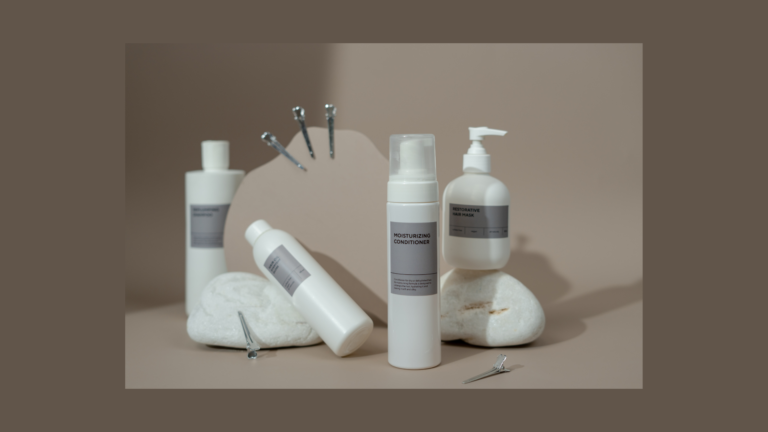
Shampoos and Conditioners:
- Biotin-infused Shampoos: Biotin is known for promoting hair growth and strength.
- Sulfate-Free Shampoos: Gentle cleansing without stripping natural oils.
- Moisturizing Conditioners: Keep hair hydrated and prevent dryness.
Hair Oils:
- Coconut Oil: Nourishes and moisturizes the hair, reducing breakage.
- Argan Oil: Adds shine and helps control frizz.
- Jojoba Oil: Balances oil production on the scalp.
Scalp Treatments:
- Tea Tree Oil: Antifungal properties promote a healthy scalp.
- Peppermint Oil: Stimulates blood flow to the hair follicles.
Hair Masks:
- Olaplex No. 3 Hair Perfector: Repairs and strengthens damaged hair.
- DIY Masks: Using natural ingredients like honey, yogurt, and avocado for deep conditioning.
Supplements:
- Biotin Supplements: Supports hair, skin, and nail health.
- Vitamin E Supplements: Promotes overall hair health.
Leave-in Products:
- Leave-in Conditioners: Provide extra hydration and protection.
- Heat Protectant Sprays: Essential when using heat styling tools.
Styling Products:
- Alcohol-Free Styling Products: Prevents dryness and damage.
- Volumizing Sprays: Adds volume without weighing down the hair.
Hair Growth Serums:
- Minoxidil: FDA-approved for promoting hair growth.
- Peptide-based Serums: Support hair follicle health.
Protein Treatments:
- Keratin Treatments: Strengthens and repairs damaged hair.
Vitamins and Nutritional Supplements:
- Multivitamins: Ensure overall nutritional support for hair health.
- Omega-3 Fatty Acids: Contribute to scalp health.
Remember, it’s essential to choose products that align with your specific hair type, concerns, and preferences. Additionally, maintaining a healthy lifestyle, including a balanced diet and proper hydration, is crucial for optimal hair health and growth. If you have specific concerns or conditions, it’s advisable to consult with a healthcare professional or a dermatologist for personalized recommendations.
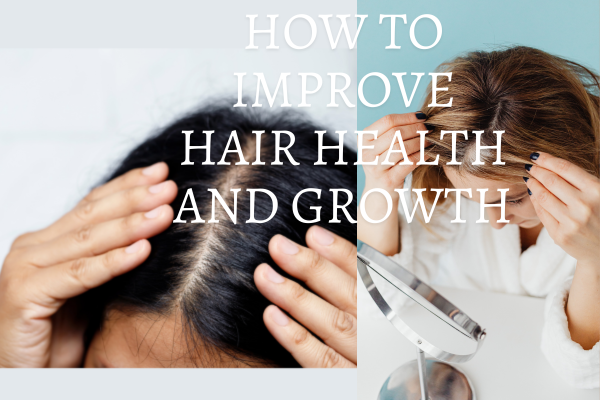


Pingback: 4 genuine Hair care routines for different hair types
Pingback: 3 best hair straightener for thick curly hair
Pingback: 10 major points of How To Hair Growth Fast
Pingback: 6 best of which hair extensions are best for thin hair